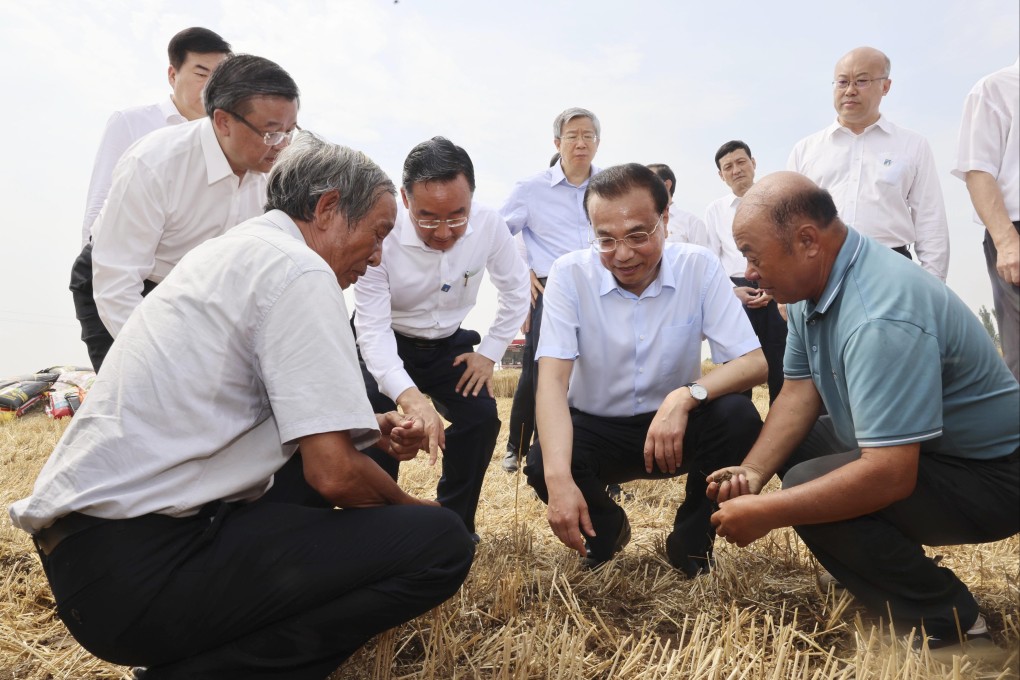China inflation: Li Keqiang says ‘prudent’ economic policy, bumper wheat harvest leaves room to tackle risks
- Premier Li Keqiang has explained Beijing’s refusal for large-scale loosening, despite an economic slowdown caused by zero-Covid
- Li says grain and energy prices are two key areas to stabilise this year, though a good wheat harvest is ‘almost guaranteed’

China has room to manoeuvre on monetary policy and will see a bumper wheat harvest this year, leaving it well placed to tame inflation and meet food security needs, Premier Li Keqiang has said.
China’s economic situation contrasts with the United States, which reported inflation at a 40-year high of 8.6 per cent last month, while forecasts of a recession are growing after the Federal Reserve hiked rates by their biggest margin since 1994.
“We have been implementing prudent monetary policy and not printing excessive money in recent years,” the country’s No 2 leader said during a visit to Gaobeidian and Zhuozhou, two cities in Hebei province near Beijing.
“An important reason for this is to prevent inflation and create room to counter challenges in the future,” he said, according to the official Xinhua News Agency.